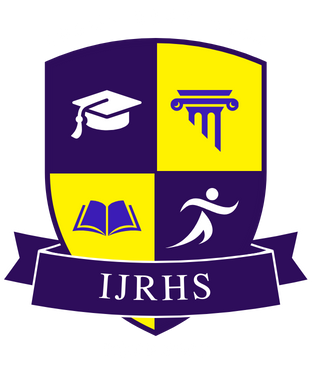![]()
Published Paper PDF: Download PDF
DOI: https://doi.org/10.63345/ijrhs.net.v13.i8.2
Dr. Gaurav Raj
SSET
Sharda University, Greater Noida, India
er.gaurav.raj@gmail.com
Abstract
This study offers a comprehensive analysis of language hierarchies and code-switching practices within Indian government school classrooms, highlighting the intricate ways in which linguistic repertoires are mobilized by teachers and students to negotiate meaning, authority, and identity. Grounded in sociolinguistic and educational theory, the research examines the interplay among English, Hindi, and regional languages across instructional and interpersonal contexts. Leveraging a mixed-methods design, data were collected from a purposive sample of 200 participants—comprising 120 students (grades 8–10) and 80 teachers—from four government schools in both rural and urban districts of Uttar Pradesh. Quantitative measures captured the frequency of language alternation across distinct pedagogical tasks, while a Motivation Scale assessed the reasons for code-switching, including comprehension scaffolding, classroom management, and group identity formation. Qualitative classroom observations provided rich descriptions of interactional moments where language choices indexed power relations and pedagogical strategies. Findings reveal that while code-switching is routinely employed to clarify complex content and maintain classroom discipline, it simultaneously reflects and reproduces English’s prestige status, reinforcing unequal access to educational opportunities. Conversely, strategic deployment of Hindi and local languages facilitates learner comprehension and affirms cultural belonging. The study concludes by proposing a set of policy and practice recommendations—such as formalizing multilingual pedagogies, enhancing teacher training in bilingual instruction, and elevating the status of regional languages—to foster more inclusive, equitable learning environments in government schools.
Keywords
Language Hierarchies, Code-Switching, Government Schools, Multilingual Education, India
References
- Annamalai, E. (2005). Nations, states, and languages in India. In R. Blench & M. Spriggs (Eds.), Archaeology and Language I: The Indo-Australian Relationships (pp. 217–234). Routledge.
- Brown, H. D. (2000). Principles of language learning and teaching (4th ed.). Pearson Education.
- Government of India. (1950). Constitution of India. Ministry of Law and Justice.
- Gumperz, J. J. (1982). Discourse Strategies. Cambridge University Press.
- Harbord, J. (1992). The use of the mother tongue in the classroom. ELT Journal, 46(4), 350–355. https://doi.org/10.1093/elt/46.4.350
- Kachru, B. B. (1992). World Englishes: Comparative perspectives. Oxford University Press.
- Mohanty, A. K., Panda, M., & Mishra, R. (2009). English and the three-language formula in India: The contradiction between policy and practice. Current Issues in Language Planning, 10(4), 471–490. https://doi.org/10.1080/14664200903446488
- Myers-Scotton, C. (1993). Social motivations for codeswitching: Evidence from Africa. Oxford University Press.
- Pennycook, A. (1994). The cultural politics of English as an international language. Longman.
- Prabhu, N. S. (1990). There is no best method—why? TESOL Quarterly, 24(2), 161–176. https://doi.org/10.2307/3586892
- Ramanathan, V., & Atkinson, D. (1999). English and the test of English as a second language. TESOL Quarterly, 33(2), 320–332. https://doi.org/10.2307/3587712
- Rao, Z. (2007). Code-switching in a Chinese secondary school English classroom: Functions and attitudes. English World-Wide, 28(2), 167–190. https://doi.org/10.1075/eww.28.2.04rao
- Sharma, P. (2014). Voices and choices: Language policy in classrooms. Journal of Multilingual and Multicultural Development, 35(6), 583–598. https://doi.org/10.1080/01434632.2014.905174
- Srivastava, R. (2009). Language, identity, and education in India. Annual Review of Anthropology, 38, 37–53. https://doi.org/10.1146/annurev-anthro-091908-164306
- Swain, M., & Lapkin, S. (2000). Task-based second language learning: The uses of the first language. Language Teaching Research, 4(3), 251–274. https://doi.org/10.1177/136216880000400304
- Vygotsky, L. S. (1978). Mind in society: The development of higher psychological processes. Harvard University Press.
